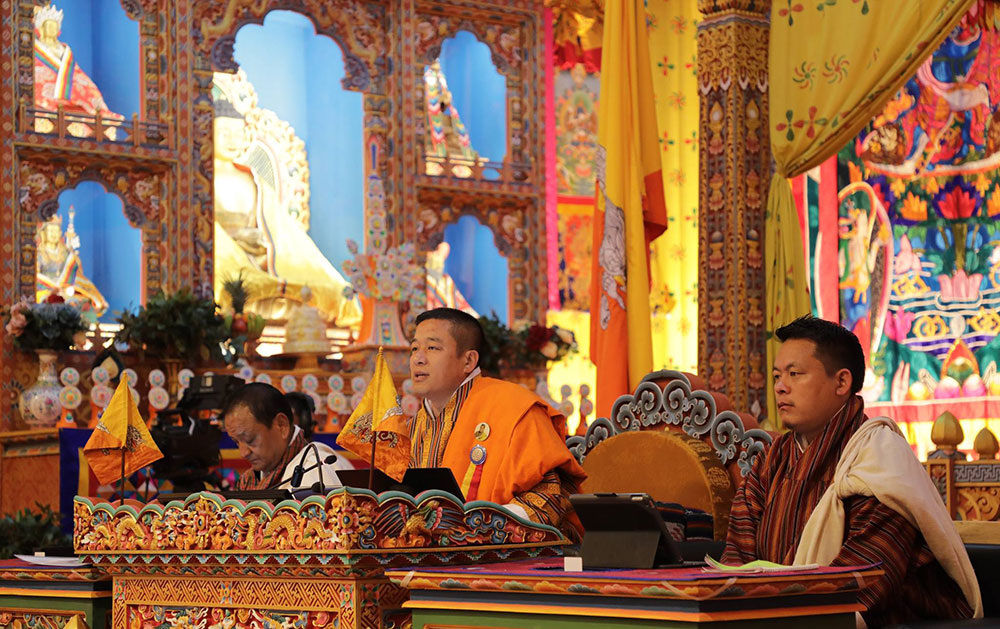YK Poudel
The National Council’s (NC) Social and Cultural Affairs Committee (SCAC) yesterday presented a series of recommendations aimed at improving the lives of persons with disabilities (PWDs).
Several agencies working with PWDs and students also attended the discussion. The deliberations on the recommendations will continue today.
The Committee also proposed 35 recommendations in eight areas to complement the government’s efforts and ensure a more inclusive and equitable society for Bhutanese citizens.
The proposals include strengthening policy implementation, improving access to education and healthcare, raising public awareness, and ensuring nationwide accessibility, among others.
The recommendations come in the wake of the National Health Survey 2023 that reported a dramatic increase in the number of PWDs in Bhutan.
The survey documented approximately 48,000 individuals with disabilities, a significant rise from over 15,000 recorded in the Population and Housing Census of Bhutan (PHCB) in 2017.
The highest disability rates were noted in Dagana, Pemagatshel, Lhuentse, Wangdue, and Zhemgang.
SCAC’s chairperson, Kesang Chuki Dorjee, presented the report covering background, observations on the implementation status of the National Policy for PWDs, and data on inclusive education and healthcare accessibility in Bhutan.
“In addition to preventative measures, there is a need for increasing the number of foreign caregivers and making government information more accessible to persons with disabilities,” she said.
It was important to ensure that people with disabilities in Bhutan received the necessary support, she said, and that the Committee recommended bringing in caregivers from abroad for those who need extra assistance. “Implementing text-to-speech technology on government websites to make information more accessible is also crucial.”
“Despite these efforts, implementation challenges persist. Limited awareness among crucial stakeholders, the impact of the Covid-19 pandemic, high turnover rates in local government, and confusion post-dissolution of the Gross National Happiness Commission hinder progress,” she said.
The Committee also recommended reviewing the NPPD to complement the government’s efforts in the 13th Plan.
Besides vision, hearing, mobility, communication, self-care, and cognition, NHS 2023 added cognition disability, encompassing intellectual and learning disabilities such as ADHD, dyslexia, Down syndrome, mental illnesses, brain injuries, and dementia among the various forms of disabilities.
Recommendations from the Committee includes housing allotments for persons with disabilities, disability allowances, prioritising investment in Special Educational Needs teachers, reserving designated government positions for persons with disabilities, and exploring options for affordable transportation beyond Thimphu.
Following the presentation from the Committee members, the NCs asked for clarifications on certain points and provided recommendations on areas of improvement.
Bhutan’s recognition of disability encompasses long-term impairments—physical, mental, intellectual, or sensory—which, combined with environmental barriers, hinder full and equal participation.
Globally, the World Health Organization reports that there are 1.3 billion people with disabilities.
The Constitution mandates the State to provide security in the event of sickness and disability.
The National Policy for Persons with Disabilities (NPPD), adopted in 2019, aims to improve access to education, health, justice, and protection services, emphasising empowerment and participation in political and socioeconomic development.
As a signatory to the UN Convention on the Rights of Persons with Disabilities (UNCRPD) since 2010, Bhutan ratified the convention in October 2023, becoming the 191st member to formally protect the human rights of people with disabilities.
The 13th Plan has allocated a budget of Nu 1.1million to support inclusive education programmes, including teacher training, building disabled-friendly infrastructure, and training Paralympic athletes.
The Committee’s recommendations focus on enhancing UNCRPD and policy implementation, inclusive education, health outreach and early intervention, economic security, and accessibility.
Key proposals include centralised data collection, stakeholder awareness and engagement, local government funding, inclusive decision-making, an online disability resource center, and expanding affordable public transportation options beyond Thimphu.


